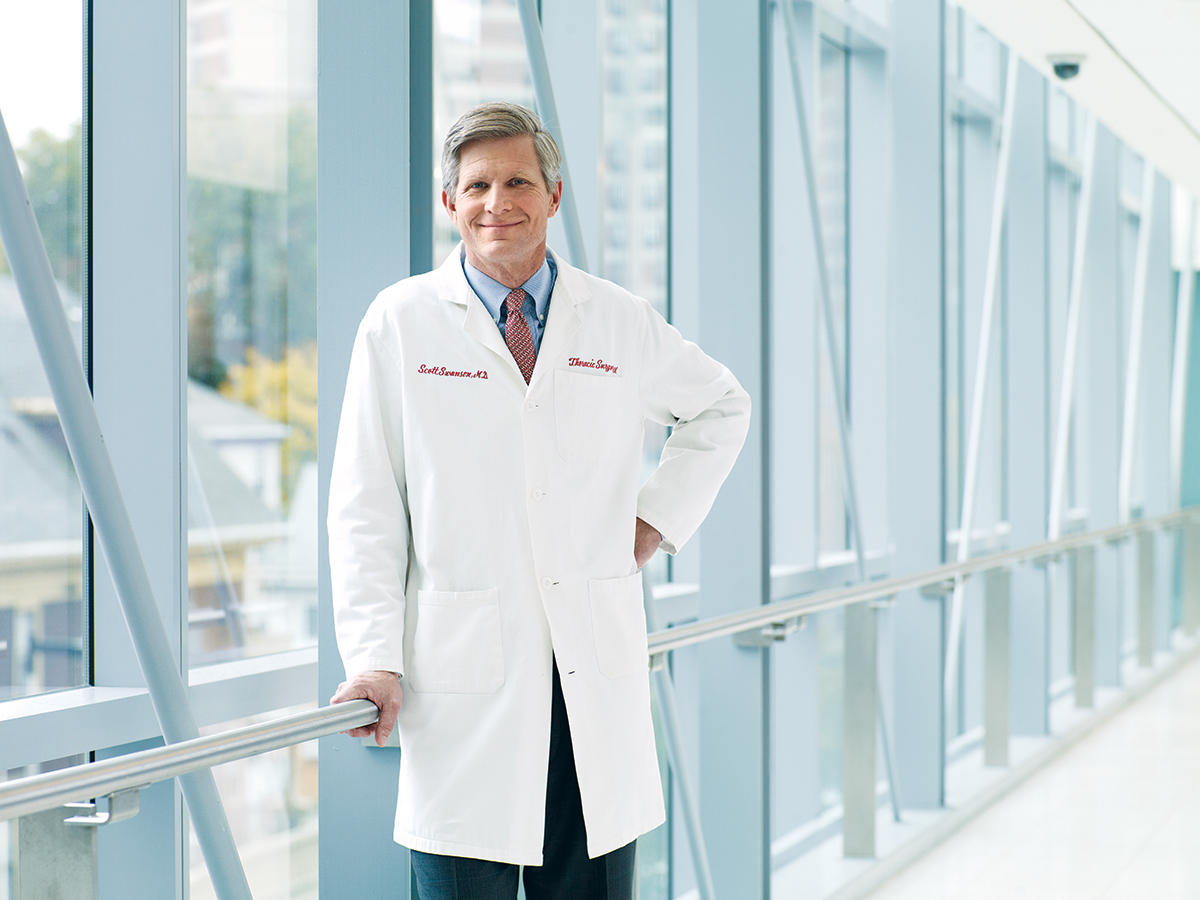Making the Rounds with Boston’s Top Docs

Photograph by Christopher Churchill
DR. SCOTT SWANSON
Thoracic Surgery
• Hospital affiliations: Brigham & Women’s, Dana-Farber
• Board certifications: General surgery, thoracic surgery
• Education: Harvard Medical School
• Years in practice: 15
[sidebar]Why did you choose thoracic surgery? It’s such an all-encompassing specialty: It deals with a lot of cancer, but also benign conditions; there’s big-incision surgery and tiny-incision surgery, and transplants. I had thought about cardiac surgery, but thoracic focuses more on the whole disease, rather than on a particular operating procedure. That really appeals to me.
Including school and residencies, your career has been spent largely in Boston. What do you like about working here? Not only is the depth of talent phenomenal, but it’s all so closely connected. The people in the med schools and hospitals, you’ve heard of them or they know someone you know. If I have a family member or patient who has a problem, I send one e-mail and—boom, we’re done.
What innovation in your field have you been most excited about? My big research interest is minimally invasive surgery, and some of the stuff there is just incredible. In video-assisted thoracic surgery, or VATS, we make three small cuts—two for instruments and one for a tiny camera—and can perform operations that used to require a big incision and spreading the ribs. It’s a major advance—probably like the first guy who sent an e-mail and said, “This is the real deal.”
What do you find most rewarding about your work? When someone has cancer, for instance, they know they’re looking down the barrel of a gun. So they instantly connect to you and understand you’re on their side and you’re fighting for the best possible outcome. Being able to help people like that, it’s a privilege. It’s amazing.
What are the challenges? When some people get a frightening diagnosis, they want to be seen that day and be treated the next. It’s totally understandable—they can’t sleep, they’re worried about what they’ve read on the Internet—but managing that kind of expectation on a practical level can be difficult.
What would your patients be surprised to learn about you? I’m still in close touch with friends from grammar and junior high school, and in particular my best friend since I was seven—one of the major advantages of growing up, going to school, and working in the same city.